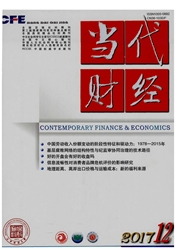

 中文摘要:
中文摘要:
基于中国2003-2014年间A股上市公司的季度数据,研究了紧缩性货币政策对企业风险承担的影响,以及财务柔性对二者关系的调节作用。结果发现,银根紧缩能够有效抑制企业风险承担行为,意味着货币政策传导的企业风险承担渠道存在;财务柔性对银根紧缩与企业风险承担关系具有负向调节效应,表明财务柔性能够削弱银根紧缩对企业风险承担的抑制作用,使得货币政策效果大打折扣;财务柔性之于银根紧缩与企业风险承担的负向调节效应对企业规模、是否国有背景以及产品属性具有依存性,与大企业、非国有企业和非耐用品企业相比,中小企业、国有企业和耐用品企业的财务柔性更显著地缓解了银根紧缩对其风险承担水平的抑制效应。
 英文摘要:
英文摘要:
Based on the quarterly data of A-share listed companies in China from 2003 to 2014,this paper studies the impact of tightening monetary policy on corporate risk-taking and the effect of financial flexibility on the adjustment of the relationship between the two. The results show that monetary tightening can effectively restrain the corporate risk-taking behaviors, which means that there are channels of corporate risk taking transmitted by monetary policies. Financial flexibility has negative adjustment effect on the relationship between monetary tightening and corporate risk-taking, which shows that financial flexibility can weaken the restraint effect of monetary tightening on corporate risk-taking, giving a discount to the effect of monetary policy. The negative effect of financial flexibility on monetary tightening and corporate risk-taking has a dependence on firm size, state-owned background and product attributes. Compared with large enterprises, non-state-owned enterprises and non-durable goods enterprises, the financial flexibility of SMEs, state-owned enterprises and durable goods companies can more significantly alleviate and the inhibiting effect of monetary tightening on the level of risk-taking.
 同期刊论文项目
同期刊论文项目
 同项目期刊论文
同项目期刊论文
 期刊信息
期刊信息
